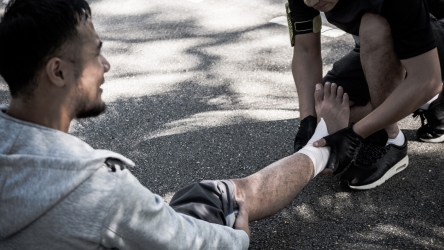
Physical therapy is rarely something fun to go through. It can be a painful reminder of an accident, illness, or injury that incapacitated you to some degree, and it means you consistently have to face your limitations. However, the goal of it is usually to improve your quality of life. Knowing how to make the most of your physical therapy means increasing your odds of the best results.
Have Your Story Ready
The first time a physical therapist meets with you, they’re going to ask a lot of questions. When did your pain start? How did your condition develop? What resulted in your accident or surgery? Don’t expect them to remember or learn everything from your records. They’re going to ask about your history. So take the time to think about your injury or condition. If it helps, write down important dates.
Be Ready for Goals
Physical therapy often has concrete and specific goals it tries to attain. This might feel like homework. It might even feel like standards you’re being expected to uphold. Just remember that goals are eventual. They will take time and work. Just know that your physical therapist has helped many patients, so your goals should be attainable. And don’t be afraid to tell your therapist if you fell short of a goal. That information will only help you. Goals are the steps to recovery, so do what you can to fulfill them.
Show Up
How many times you need physical therapy will vary based on the nature and severity of your particular injury or condition. It might only be once a week, but it could even be daily. How long it will all last is also up in the air. Keeping showing up for each appointment, however. The first one might be the most important, but you can’t miss any of them if you can help it. That also means doing the self-work at home that you are prescribed in terms of treatments and exercises.
Do the Home Exercises
Whether it is stretches or other forms of homework, make sure you do the homework! While it would be nice to see a lot of change from just the appointments, the truth is it doesn’t work that way. Consistency in the exercises is critical. Change takes time and patience, so make sure you follow your homework. If you don’t, recovery could take much longer, if it occurs at all. Take time out of your day to do the exercises, schedule it if necessary. You will be glad you did in the long run.
Ask Questions
It’s good to trust doctors, nurses, and physical therapists. They’re trained and educated professionals in their specific disciplines. However, they should also be willing and able to explain anything and everything to you. The more you understand what’s going inside your body and how specific things help, the more likely you are to stay committed to it. So if something doesn’t make sense to you, go ahead and ask. There are no stupid questions!
Take Care of Yourself
When you care for your overall health, your specific physical therapy is likely to have more impact. Also, after physical therapy is over, you might be at risk of reinjury, so take care of yourself enough to try and prevent that from happening. If you feel your injury resurfacing, make sure to do your exercises!
Hopefully, your physical therapy won’t last as long as it might feel. There are often specific and attainable goals that mean considerable progress in your health and how you feel. Take all these steps along the way on top of what your doctors and therapists ask you to do.







